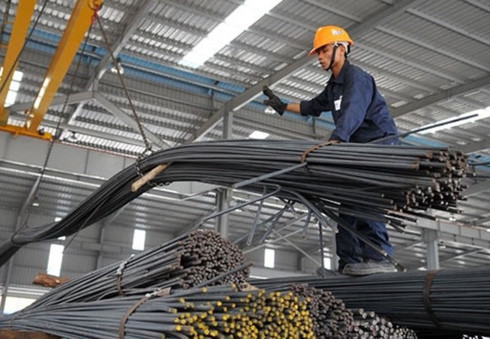Trade war puts steel products at risk of unfair competition
 |
According to the Vietnam Steel Association, the steel sector has undergone rapid growth in the past time while making considerable progress in terms of both quality and quantity. Semi-finished and finished steel products imported from China annually account for more than 50 per cent of Vietnam’s total steel imports.
Nguyen Van Sua, an expert on steel production and business, claimed the US-China trade war has primarily resulted in negative impacts on the global sector, with the Vietnamese steel industry being no exception.
The domestic sector has yet to experience a large number of adverse effects caused by the trade war, but the US-China trade frictions once escalate, they could threaten the steel production and distribution of China which currently occupies up to half of the world’s steel output. The neighboring country could potentially face tremendous pressure to boost the export of steel products.
As a response to the US tariffs triggered by the trade war, yuan depreciation has enabled a drop in the price of China’s finished steel products while improving the competitiveness of such items.
The deep depreciation of yuan could leverage the intrusion of China’s cheap steel products into the Vietnamese market, especially construction steel, cold-rolled steel, and steel sheets. It could also lead to unfair competition between domestically-produced steel and Chinese items, Sua said.
Domestic steel manufacturers should seek to improve the competitiveness of their products by finding a way of both slashing cost price and ensuring the quality of products, he noted, adding that expanding their export markets is another must for domestic firms looking to stay competitive.
They are advised to update relevant regulations set by importing countries in order to take trade remedies if needed. They should also keep a closer eye on tariff and non-tariff measures, along with technical barriers required by importers so that they can outline export plans as a way of competing with Chinese rivals.

